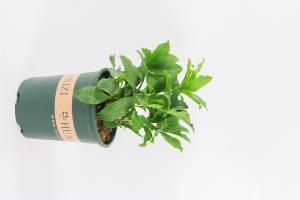Does City Water Hurt Plants?
City water is an essential source of water for many people. It is readily available and often treated to remove impurities. However, some people worry about the impact of city water on their plants. Does city water hurt plants? This article will explore this question and provide you with the necessary information to make an informed decision about watering your plants with city water.
Chlorine in City Water
City water is often treated with chlorine to kill harmful bacteria and pathogens. However, excessive amounts of chlorine can harm plants. Chlorine damages the leaves and can stunt plant growth. To avoid this, it is important to remove chlorine from city water before using it on plants. You can do this by letting the water sit for at least 24 hours, or by using a chlorine-removing filter.
Fluoride in City Water
Another concern with city water is the presence of fluoride. While fluoride is important for human dental health, excessive amounts can negatively impact plant growth. Some plants are more sensitive to fluoride than others, especially those with fleshy leaves. If you notice signs of fluoride toxicity on your plants, such as brown tips or spots on the leaves, consider switching to distilled or rainwater instead.
pH Levels in City Water
City water also has a pH level that can affect plant growth. Most plants prefer a slightly acidic to neutral pH range, around 6.0 to 7.0. However, city water can vary in pH based on the source and treatment process. If you are unsure about the pH level of your city water, you can test it using a pH kit from a garden center or online. If the pH level is not within the preferred range for your plants, you may need to adjust it with a pH balancer or consider using a different water source.
Hard Water in City Water
Hard water is another concern with city water. Hard water contains high levels of minerals, such as calcium and magnesium, which can build up in the soil and prevent plants from absorbing water and nutrients. If you live in an area with hard water, consider using a water softener or filtering system to remove excess minerals before using it on your plants.
Conclusion
In conclusion, city water can harm plants if not properly treated or if it contains high levels of chlorine, fluoride, or minerals. To ensure the health of your plants, it is important to remove chlorine, test pH levels, and consider alternative water sources if needed. By taking these steps, you can ensure that your plants thrive and remain healthy.

 how many times do yo...
how many times do yo... how many planted tre...
how many planted tre... how many pine trees ...
how many pine trees ... how many pecan trees...
how many pecan trees... how many plants comp...
how many plants comp... how many plants can ...
how many plants can ... how many plants and ...
how many plants and ... how many pepper plan...
how many pepper plan...































